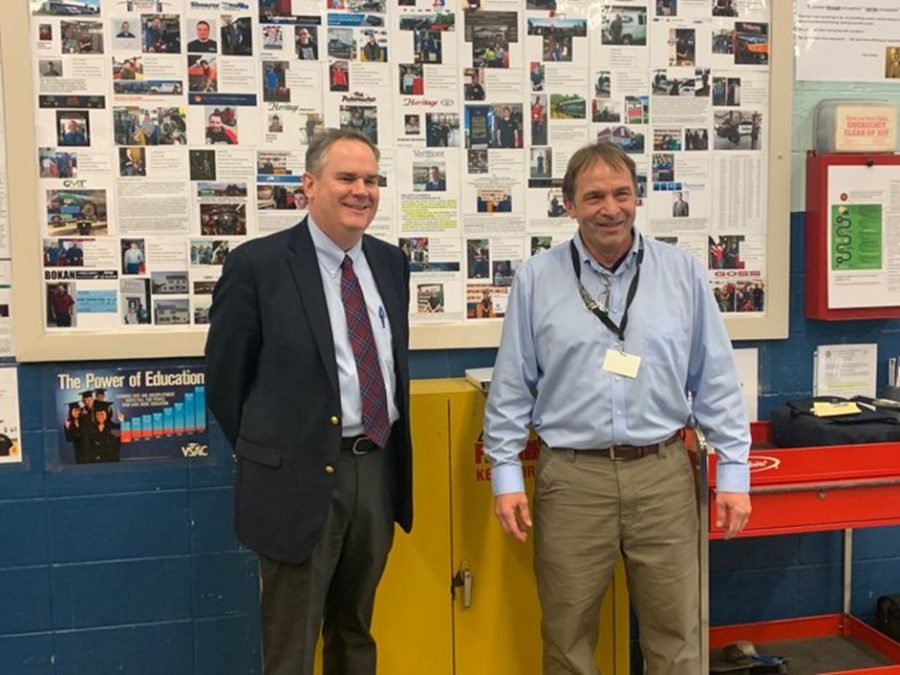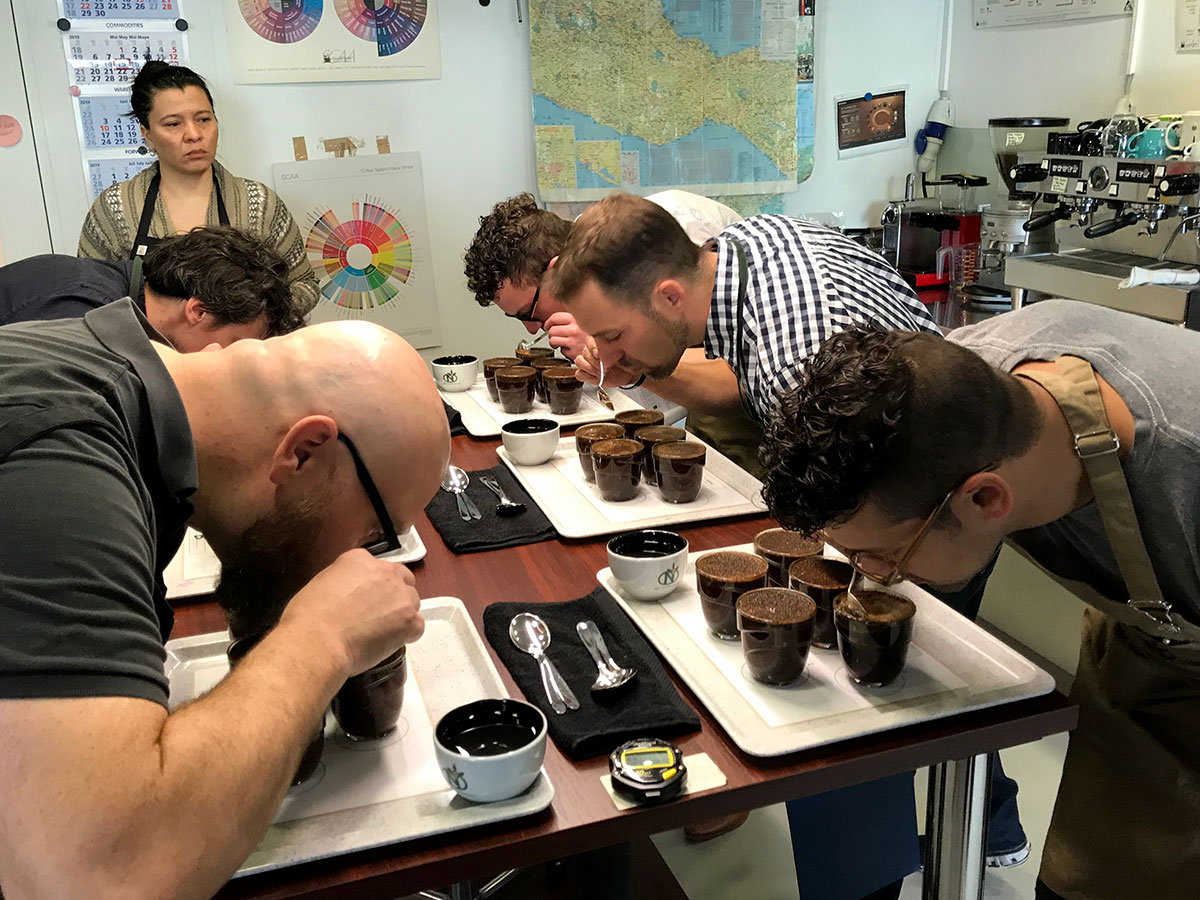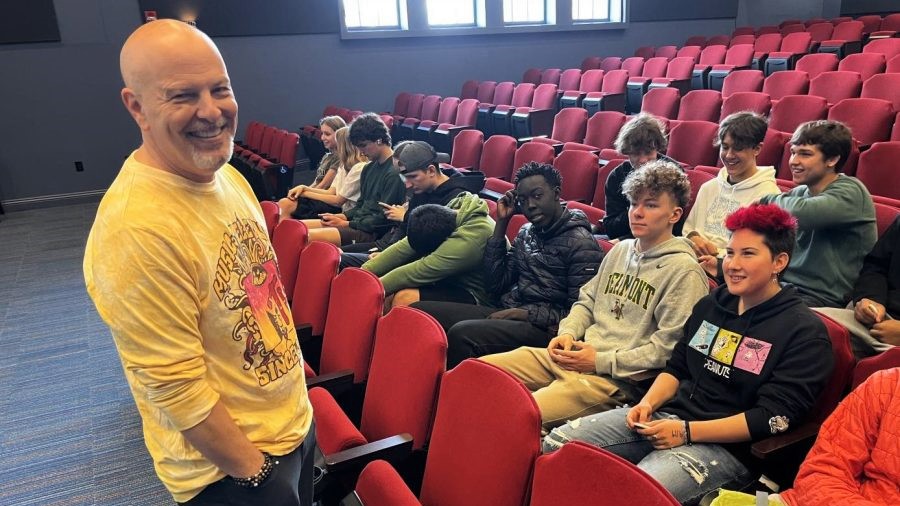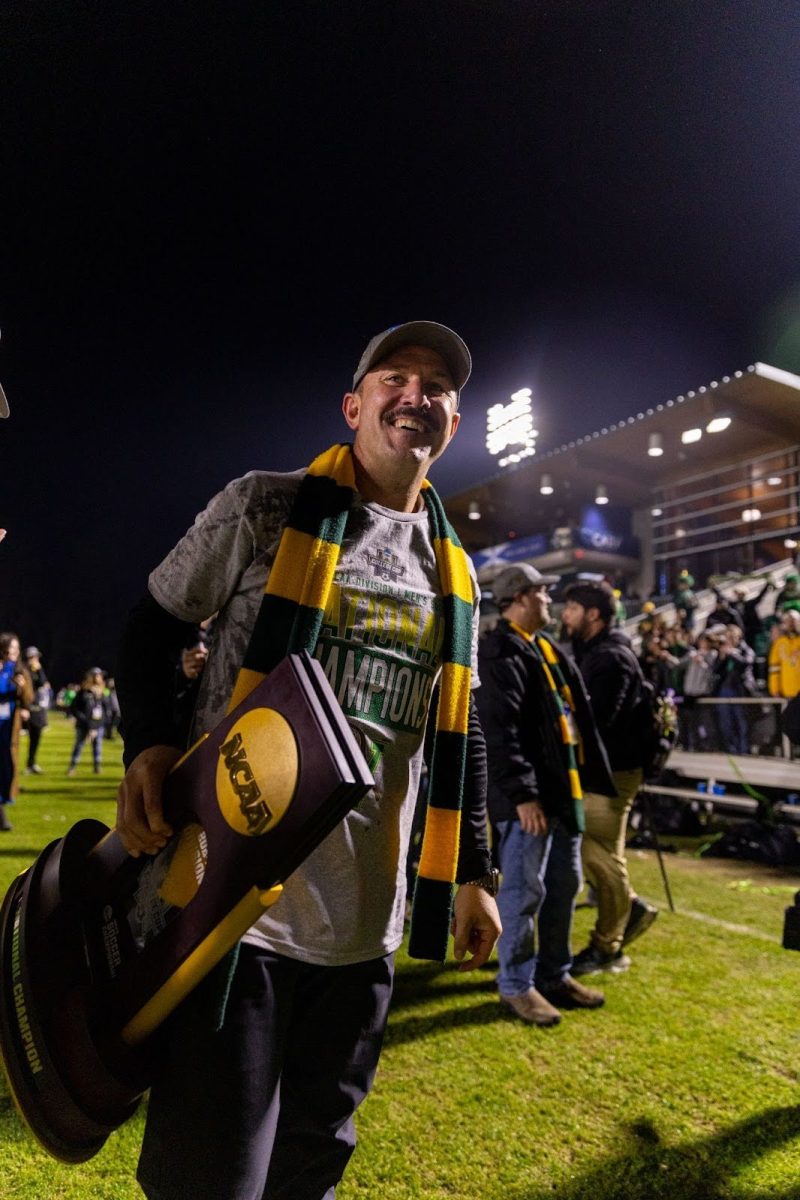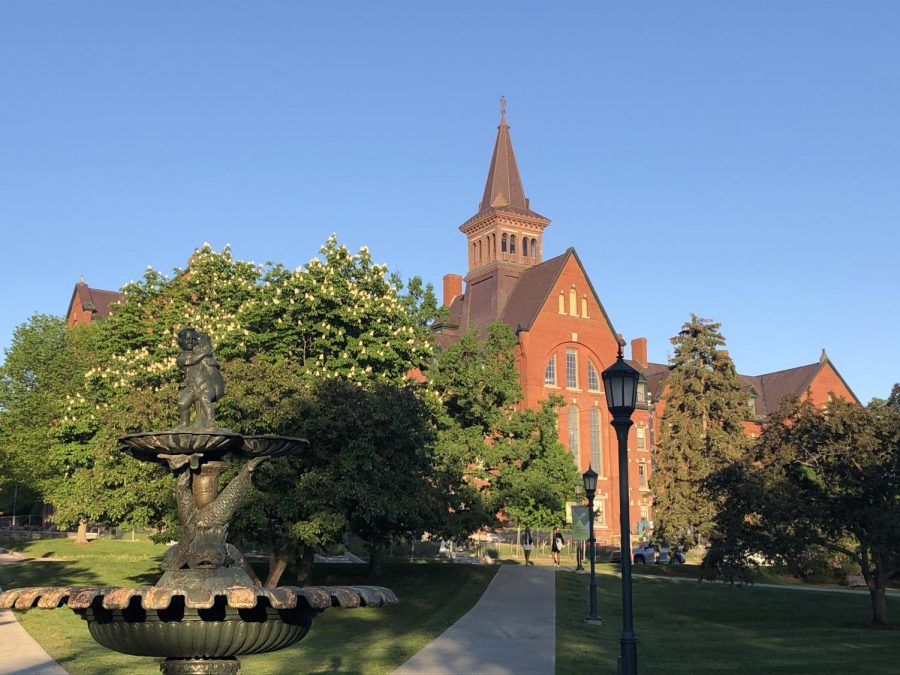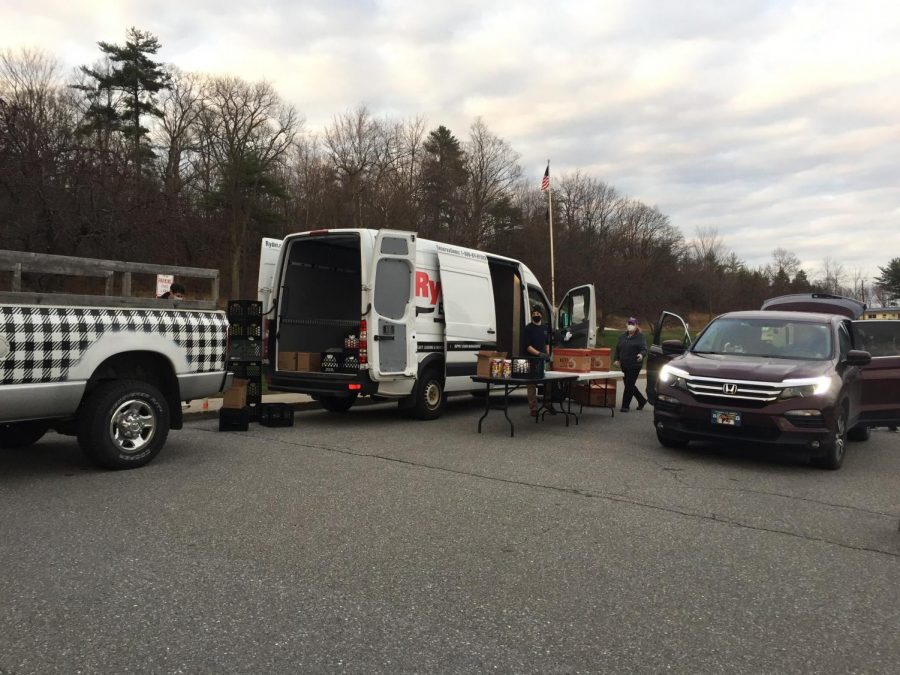Walking into the auto center at Burlington Technical Center (BTC), you will see cars on lifts and teams of students in safety goggles motoring about. Cans of oil, spare tires and dozens of tools line the space. The walls of the classroom are covered with profiles of graduates from the BTC automotive program: who they were and where they are now.
This Wall of Fame includes side-by-side then and now photos , descriptions of where they are employed and various professional successes.
This remarkable project is the work of Bob Church, the Automotive Science and Technology Instructor at Burlington Technical Center (BTC). His pride in his students and his work is evident. Church is a staunch advocate for technical education and has been for his full 29 years at BTC.

Bob Church smiles in front of the wall of fame
On October 23, at the invitation of Church, Vermont Secretary of Education, Dan French, visited Burlington Technical Center for his first time. There he visited the wall, perused the accompanying 112 page binder of graduates, and chatted with Church.
Neither Burlington School District nor the state keeps long term records of high school graduates so Church took it upon himself to it. His records give valuable information about the long term impacts of not only the BTC automotive program but experiential learning as a whole. The goal of the meeting with French was simply to share this anecdotal data.
“[French] is starting to look at different ways of delivering high school education in a more comprehensive model to incorporate some of the more technical skills to better prepare students,” Church said in an interview prior to the visit. “I’ve been sending him information, and finally this board put him over the edge that he wants to come and check it out.”
Alex Darling is one of the stars in Church’s Wall of Fame. Darling, BTC class of 1992, started his first year in the automotive program during Church’s first year of teaching. After graduating BTC, he attended New Hampshire Technical College and later got certified in Automotive Service Excellence (ASE) and then became a certified Toyota master technician. He is currently employed by Toyota working as a Field Technical Specialist at the Boston Regional Office.
Darling credits his successes to the skills he developed in Church’s class and noted transferable skills such as public speaking as being an asset.
“You don’t generally think of technicians as people who need to master public speaking, and yet he had us on a weekly basis get in front of the class do a presentation,” Darling said. “It’s just those little things that Bob did differently that tied it all together for me. It was a big factor and what I consider my success.”

Left: Alex Darling in Church’s class back in 1992
Right: Alex Darling at the Toyota Regional Office in Boston over 15 years later
John Malcovsky, BTC class of 2000, says Church’s program helped him build the fortitude and systems level thinking he needed to excel in the real world.
“There is an incredible amount of mental skills required,”Malcovsky said. “It’s troubleshooting. It’s figuring out how things work and not just car systems but how the business world works and that kind of stuff.”
Through the program, Malcovsky was able to participate in an internship at IBM and later attended Vermont Technical College. He currently works at Kaigles Service Center on Sears Lane in Burlington.

Left: John Malcovsky in high school in 2000
Right: John Malcovsky and Bob Church in 2014
Omar Bulle, BTC class of 2014, says programs like Church’s are important because they cater to different learning styles.
“It’s really important to realize each student learns a different way,” Bulle said. “I was definitely a student that learned better in a hands-on setting then in a classroom setting.”
Like Malcovsky, Bulle participated in an internship through the program. Bulle completed an internship at the University of Vermont (UVM) Physical Plant where he learned skills ranging from the operation of central steam and chilled water plants to how to maintain UVM’s 180 vehicles. After graduation, he went to Champlain College and he is currently employed by WageWorks in Williston working as an accounting assistant.
Though he is no longer working in the auto industry, he was able to apply the transferable skills he learned at BTC to a different career.
“ [Church] taught us to think in real-life situations,” Bulle said. “He taught how we present ourselves to employees. Not in any other of my classes was I told how to present myself and how to act in a real-world situations.”

Left: Omar Bulle at his internship in 2014
Right: BTC Omar Bulle at his desk working as an accounting administrator
When French came, he didn’t only hear the success stories. In order to give the full picture, Church keeps a record of every participant he can. In a separate, thankfully much smaller binder, Church keeps track of students who have traveled much tougher roads post BTC, some have passed away too young, some have served time in prison, one has even been convicted of murder. Yet for Church, these students still matter.
“I left them in here because they keep me up at night,” Church said. “These are the ones we missed. So what can the system do?”
That is the question.
Right now technical education is struggling statewide. Declining high school enrollment, barriers preventing students from accessing programs, and financial disincentives threaten programs like Church’s.
Projections from the U.S. Department of Education show that the number of students in Vermont schools has been falling for the past 20 years and in less than a decade, student enrollment has declined by 15,000.
In Vermont, the money for a student follows the student. With each student that is sent to a technical school, the sending school loses that money. This creates a financial disincentive to send students to technical schools. As high school enrollments decline and competition increases for these fewer and fewer students, this financial pressure is heightened.
Rigid Federal requirements also impede student access. Tech programs are federally funded by what is called the Perkins fund. In order to qualify for funding, federal regulations require tech programs to be a minimum of 600 minutes a week. This forces students to make the decision between a traditional high school experience and technical education.
French said addressing the Perkins Plan is the first step to mitigating these challenges.
“We are going to take a whack at the Perkins plan and we will start looking at the governance structure of the system,” French said. “Funding is a big part of it right now. I think we have to look at the disincentives for schools to support students leaving their buildings.”
Though there are no immediate solutions to these problems, French sees the meeting with Church as a beneficial way to see what needs to be done about technical education statewide.
“With an instructor [Church] that has seen all those changes and to hear what they think the future holds and where they think we should go is a very efficient way for me to think about what we might need to do as a system,” French said.



